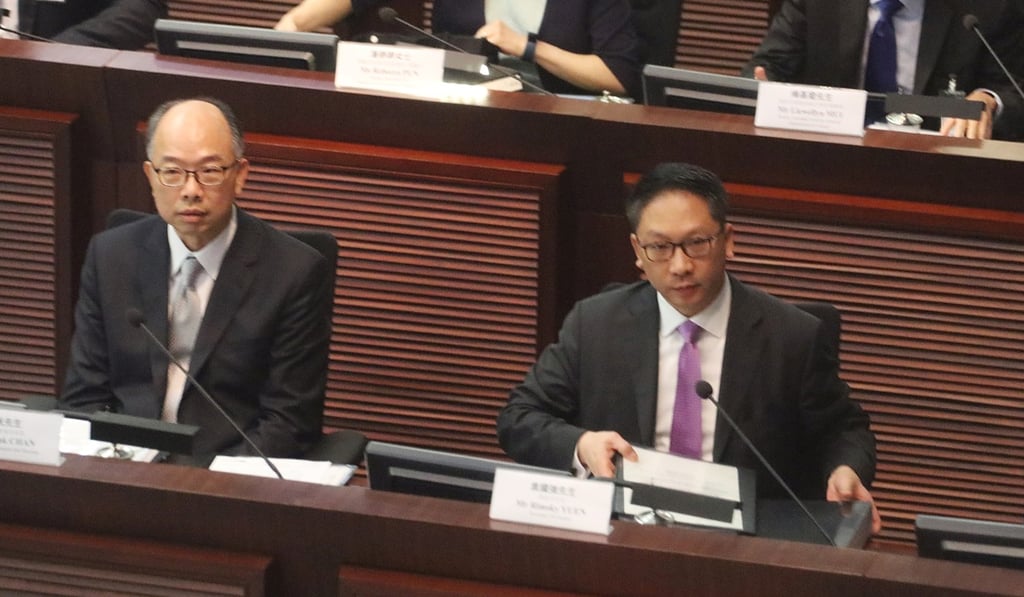Hong Kong’s justice minister responds to opposition fears on joint railway checkpoint
Rimsky Yuen tells pan-democrats he does not see how national laws might be applied elsewhere in the city in future but he can’t offer guarantees

The justice minister refused on Tuesday to guarantee that a plan allowing national laws to be enforced in the Hong Kong terminus of the cross-border rail link would not be applied elsewhere, but he said he could not see such a need arising in the near future.
Secretary for Justice Rimsky Yuen Kwok-keung made the remarks after being pressed by pan-democrats at a Legislative Council meeting to promise that the joint checkpoint would not set a precedent that would undermine people’s rights.
Hongkongers are ‘calm’ about joint checkpoint plan for high-speed rail terminal, top Chinese official says
At issue is a plan to apply national laws in a quarter of the West Kowloon terminus that will be leased to the mainland. The HK$84.4 billion rail link is scheduled to open in the third quarter of next year.
Under the Basic Law, Hong Kong’s mini-constitution, the city cannot lease land in such a manner, so it will seek permission from the National People’s Congress Standing Committee, China’s top lawmaking body, to allow it to do so. Article 20 of the Basic Law allows Beijing to grant Hong Kong that power.
On Saturday, executive councillor Ronny Tong Ka-wah suggested a clause be added in the resolution by the NPCSC to guarantee the plan would be “once and for all”. This would help ease Hongkongers’ mistrust in the central and local governments, he argued.

“I cannot see that there will be another similar situation in the short run … your worry is groundless,” Yuen replied. “But I don’t have the power to represent future administrations in making such a promise either.”